May 18, 2024 | 17:05 GMT +7
May 18, 2024 | 17:05 GMT +7
Hotline: 0913.378.918
May 18, 2024 | 17:05 GMT +7
Hotline: 0913.378.918
According to Le Minh Thien, vice president of the Vietnam Timber and Forest Product Association (VINFOREST) and chairman of the Forest Product Association of Binh Dinh, wood processing and export enterprises have faced a number of problems in asking for value-added tax (VAT) refund, especially the verification of the lists of planted forest products between timber product exporters and forest planters.
In recent years, the Government and Ministry of Agriculture and Rural Development (MARD) have strongly supported the policy of increasing the use of domestically planted forest wood, limiting dependence on imported raw wood sources while securing the sources of raw wood inputs for export processing companies.
MARD has issued Circular 27/2018/TT-BNNPTNN providing clear guidance to help remove bottlenecks in making dossiers of forest products for domestically planted wood and create favourable conditions for farmers to plant forests and processing and export businesses to do business.
“However, the verification of inventory of planted forest products between furniture exporters and forest planters is facing problems,” said Thien.
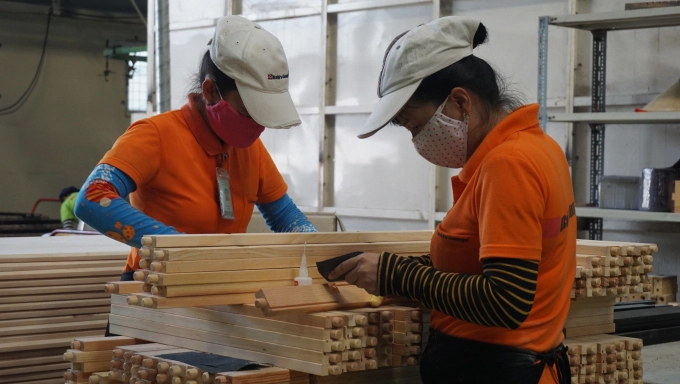
Processing wooden products for export. Photo: Vnforest.
According to wood processing companies in Binh Dinh Province, in Official Letter No. 2124/TCT-TTKT dated May 22, 2020 on tax refund settlement, the General Department of Taxation requests local tax department to verify products purchased directly from forest farmers based on the purchase list with each farmer. When checking the means of transport, it requires the comparation with the travel itinerary of each vehicle and driver.
“These requirements have caused difficulties for businesses,” Thien said.
He said the supply chain of planted timber from afforestation households to wood processing factories is very lengthy, having to go through many different stages which involve planters, transporting businesses, trading businesses and processing factories and travel through many different localities.
For example, Binh Duong and Binh Dinh are the two wood processing hubs of the country but the domestic supply of good materials is mostly located in the North Central and Central provinces such as Nghe An, Quang Tri, Thua Thien-Hue and Quang Nam. Therefore, it is impossible for export enterprises to apply for VAT refund conducting direct verification with each farmer, especially for enterprises with large export turnover.
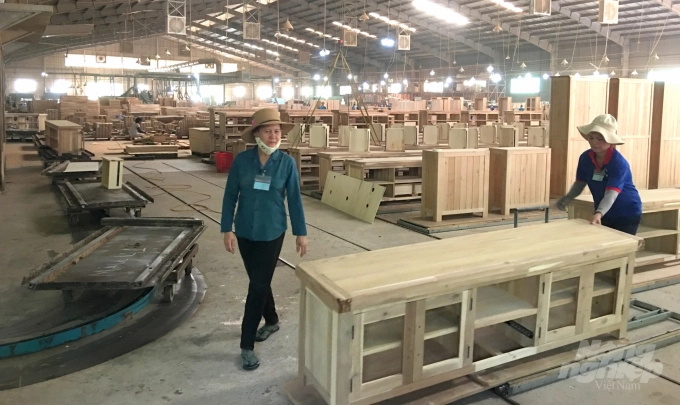
Vietnam’s timber products are mainly shipped to North America, the Europe and Japan with low export value, averaging between US$15,000-25,000 per 40-foot container. Photo: Vu Dinh Thung.
When getting the certification is complicated, export enterprises will prioritize to a more simple way of using imported raw materials. This will affect the policy of supporting afforestation growers and disrupting the domestic supply chain of wood materials.
“The development of larger timber material areas, certified wood will be delayed because the output of domestically planted timber will be trapped,” Thien said.
Another problem is the group of wood and wood products is categorized as high risk when applying for VAT refund.
GDT’s Official Letter No. 429/TCT/TTKT dated February 22, 2021 requests authority to review enterprises trading in high-risk products such as electronic components, wood and wood products, agro-forestry-aquatic products in accordance to Official Letter No. 2928/TCT-TTKT and No. 4569/TCT-TTKT. However, Vietnam’s wood and wood products are mainly exported to North America, the Europe and Japan with low export value, averaging between US$15,000-25,000 per 40-foot container.
“It’s impractical and inaccurate when evaluating wood product as high-risk as electronic components in terms of value. The requirement of additional tax inspections will cause difficulties for enterprises because it takes a lot of time to conduct these activities, especially amid the COVID-19 pandemic,” Thien said.
“We have requested GDT to issue specific and detailed instructions on how to prepare dossiers to make it well-matched with regulations on VAT refund, as well as removing wood and wood products out of high-risk goods in VAT refund,” Thien added.
Currently, the wood industry is at the forefront in implementing strict regulations and standards of free trade agreements such as Comprehensive and Progressive Agreement for Trans-Pacific Partnership (CPTPP) and EU-Vietnam Free Trade Agreement (EVFTA), especially the Voluntary Partnership Agreement (VPA)/ EU Forest Law Enforcement, Governance and Trade (FLEGT).
“If the tax industry assesses timber enterprises as a high-risk group, it will certainly affect the implementation of VPA/FLEGT,” Thien noted.
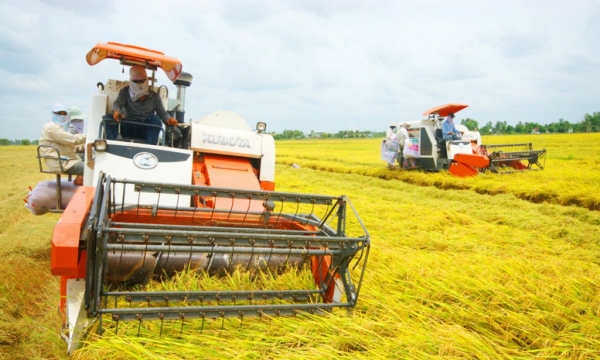
(VAN) The Multi-phase Approach (MPA) program aims to encourage client countries to invest in low-emission rice production.
/2024/05/15/1131-2-090733_559.jpg)
(VAN) The Vietnam Trade Office in Sweden said that the Northern European market has just added a number of regulations for imported cashew nuts.

(VAN) That is the decisive directive of the Chairman of the People's Committee of Vung Tau City in preventing IUU fishing violations in the locality.
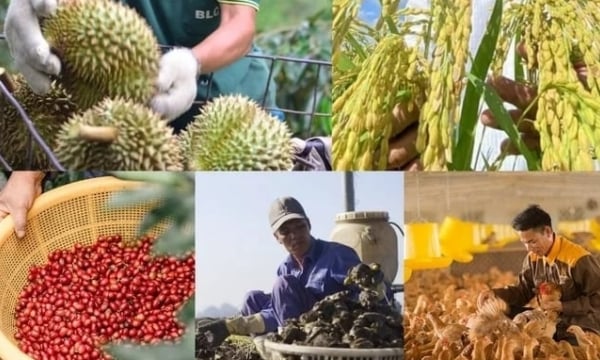
(VAN) The Government requestes ministries, departments and localities create favorable conditions, encourage farmers and agriculturists to study and increase their specialized levels.
/2024/05/12/1930-2-141548_348.jpg)
(VAN) Deputy Prime Minister Tran Luu Quang raised nine tasks and solutions for forces to prevent and overcome the consequences of natural disasters in the coming period at a conference on May 10.
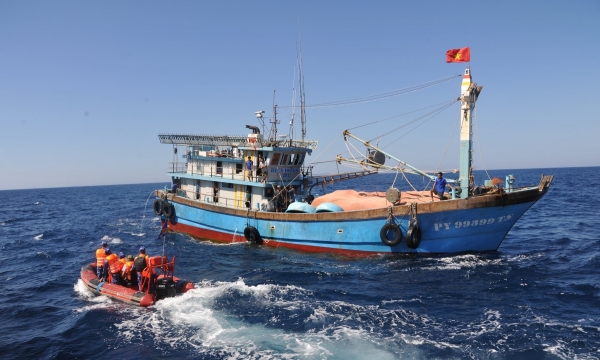
(VAN) The vission by 2050 is set on the Aquatic Resource Protection and Exploitation Planning in the period of 2021-2030, vision to 2050.
/2024/05/10/2117-1-230539_370.jpg)
(VAN) Households assigned sea surface must make the conversion from foam buoys to HDPE floating material. Any household that does not guarantee this will withdraw the decision to assign sea areas.